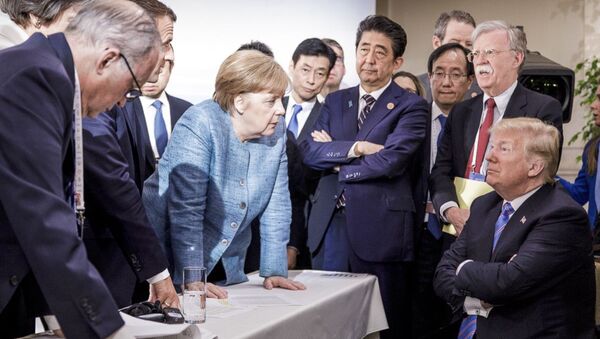Sputnik: In your view how successful was the G7 summit?
Dan Steinbock: I think that if the objective of this G7 meeting was to stress economic recovery, joint values and interests, including sanctions against Iran, the G7 was an anticipated failure because none of its objectives materialized. It was also an anticipated failure because President Trump opposes free trade very strongly. […] During his 2016 campaign Trump made it very clear that he was opposed to the traditional US globalism. During his first day at the White House he killed the Trans-Pacific Partnership between the US and Asia, set aside the Trans-Atlantic Trade and Investment Partnership and pledged to bury the North American Free Trade Agreement unless it was changed to be more favorable to the US. A year ago he initiated a trade investigation against China in steel and aluminum. There was a point in time, about a year ago, that European powers and Japan could have united in defense of the [free trade regime]. They didn’t do so, but there was this effort to gain temporary exemptions, and some of them did get those, but it was clear that they would only remain temporary.
Sputnik: Will Europeans be able to withstand the pressure from the US?
What are countries who signed the JCPOA [supposed to do] if their companies doing business with Iran say that they have to choose between their presence in the US and their presence in Iran. Looking at the volume they get their money from. If they give in in this regard, they will have to give in on other matters, including free trade with Germany and other countries don’t want to compromise.
READ MORE: Trump's G7 Communique U-Turn Destroys Partners' Trust — German Foreign Minister
Sputnik: How do you see this situation evolving?
Dan Steinbock: To change the existing policies is very difficult because European countries and Japan remain very dependent on the US economically and strategically, so there is no easy way out. I felt that this was very clearly anticipated that it would be a G6 minus a G1 situation. The key question is how long the countries will be satisfied trying to improve their own lot, rather than work together with larger regional entities.
The views expressed in this article are solely those of the speaker and do not necessarily reflect the official position of Sputnik.





